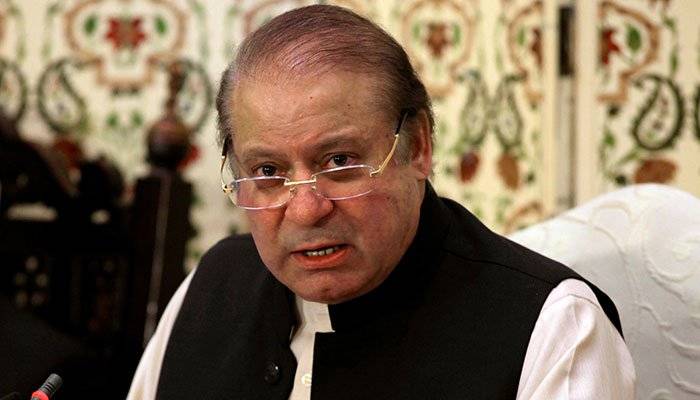Why Supreme Court rejected Nawaz Sharif bail petition?
Shares

ISLAMABAD - The Supreme Court (SC) on Friday rejected a review petition filed by former prime minister Nawaz Sharif seeking an extension in his six-week bail on medical grounds in the Al-Azizia Steel Mills corruption reference. Nawaz Sharif, in his plea filed on April 30, had requested the apex court to extend his bail, which expires on May 7, until the verdict on his earlier review petition concerning the March 26 order seeking permission to leave the country. A three-member SC bench headed by Chief Justice of Pakistan (CJP) Asif Saeed Khosa and comprising Justice Sajjad Ali Shah and Justice Yahya Afridi heard the case and in its short order also rejected Nawaz's plea seeking permission for treatment in the United Kingdom. During the course of proceedings, the chief justice remarked that the court had given six weeks bail to Nawaz Sharif to get life-saving treatment but the entire the bail period had instead been spent on conducting tests to ascertain the state of the former prime minister’s health. He observed that the court gave Nawaz Sharif six weeks bail as recommended by five medical boards and 31 doctors for angiography but the time was spent on conducting evaluations and tests. He remarked that the petitioner's conduct showed that there was no imminent threat to his life and his plea was based on mere assumptions. The CJP also observed that the petitioner's counsel had exceeded the scope of the initial petition with the latest plea for permission to go abroad. Nawaz's counsel Khawaja Haris said according to the court's written order, his client could not apply for bail before surrendering himself to the authorities. That aspect of the order was in contradiction with the verbal orders issued in the case, he added. Upon this, Justice Sajjad Ali Shah remarked that anything said by the judges before signing the verdict was called an observation and not a ruling. Khawaja Haris pleaded the court to extend his client's bail for anther eight weeks. He argued that the health condition of his client was deteriorating which required an angiography as per his medical reports. Upon this, the chief justice remarked that an angiography needed an hour time, whereas the court had granted him six weeks. Khawaja Haris said the blockage in Nawaz Sharif's carotid artery had increased by 50 per cent, which was an alarming sign. He said a cardiac MRI was used all over the world as an alternative for angiography but the process was not offered anywhere in the country. The chief justice observed that the doctors' report quoted in the court had said nothing in that regard that might be considered to be a final assessment of Nawaz Sharif's medical condition. The CJP observed that the SC could not review its order on the basis of new medical reports regarding Nawaz’s health. Anyone, who applied for bail on medical grounds, claimed that his / her life was in danger, he added. He observed that the review would become an unending process if that route was taken. Regarding Nawaz’s stress levels, the CJP noted that it was natural for every prisoner to be under stress while in jail. He also referred to a case wherein the SC had cancelled a convict’s interim bail on the grounds that he had failed to undergo the operation that he purportedly required. On the medical opinion shared by foreign doctors, the SC bench noted that they had just offered their services for treatment through letters, which were not sufficient for the court to accept their opinion. Justice Yahya Afridi remarked that matters must be dealt in accordance with the law and relief could not be given on the opinion of individual doctors. The court could only rely on opinions of the medical boards, he added. Subsequently, the court dismissed the objections and later denied the plea through a short order.
